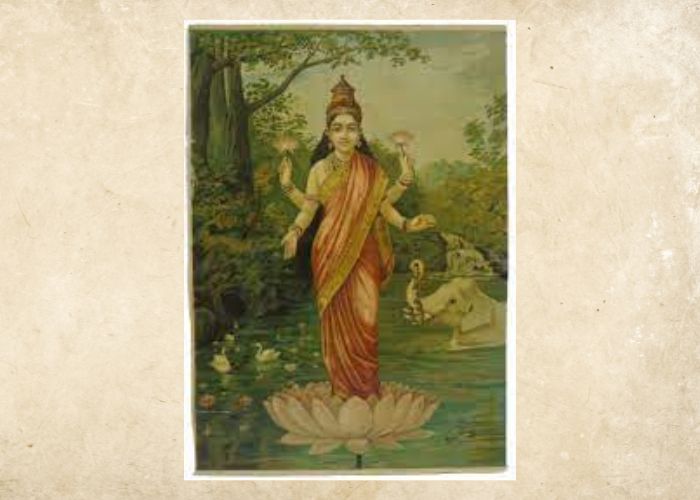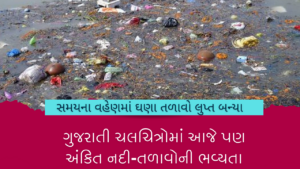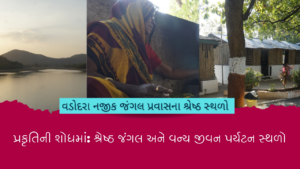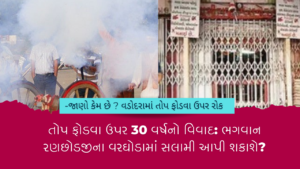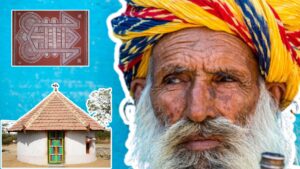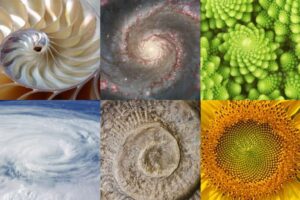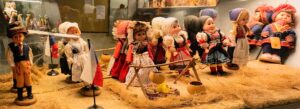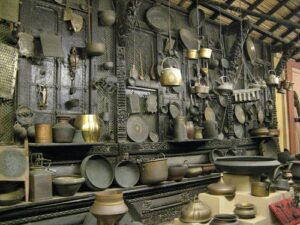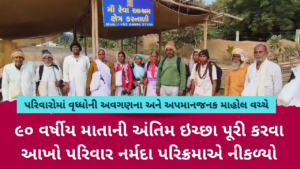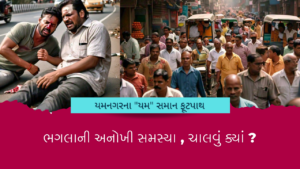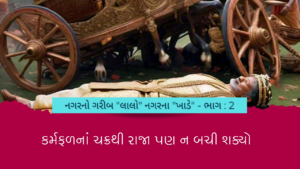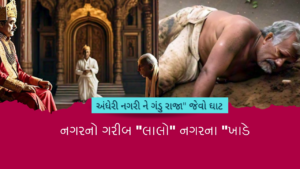— An article by Poojan Patel
As the festival of lights, Diwali, illuminates homes and hearts across the world, one iconic image takes center stage – the resplendent portrayal of Goddess Lakshmi. What many might not realize is that this divine representation is the masterpiece of none other than the Father of Modern Indian Art, Raja Ravi Varma. A true blend of artistry and spirituality, this celebrated painting finds its home in the opulent Lukshmi Vilas Palace of Baroda.
The Hindu goddess of wealth, prosperity, and good fortune, Lakshmi is the partner of Vishnu, the Vaishnavite Supreme Being. The scriptures state that Lakshmi was created from the churning of the ocean and that she made Vishnu her eternal consort. Usually shown standing or seated on a lotus, which is also thought to be a symbol of good fortune, Lakshmi is revered as the embodiment of generosity. Her four hands stand for the four aims of the Hindu life: artha, moksha, kama, and dharma.
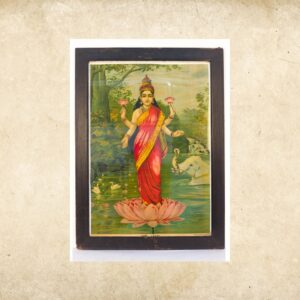 Perhaps the most well-known of all the early lithographs depicting Hindu gods is Lakshmi standing on a lotus. This is due in part to the long print run of the print—much simpler variants were created into the 1920s—as well as the recognition of Ravi Varma and his exceptional image quality. This print was created by Ravi Varma based on a series of oil paintings he completed for different clients; one of these is presently on exhibit at the Maharaja Fatesingh Museum in Vadodara. The print’s artistic excellence confirms that it was originally an oil painting, which basically gained popularity in the late 19th century, with Ravi Varma among its practitioners.
Perhaps the most well-known of all the early lithographs depicting Hindu gods is Lakshmi standing on a lotus. This is due in part to the long print run of the print—much simpler variants were created into the 1920s—as well as the recognition of Ravi Varma and his exceptional image quality. This print was created by Ravi Varma based on a series of oil paintings he completed for different clients; one of these is presently on exhibit at the Maharaja Fatesingh Museum in Vadodara. The print’s artistic excellence confirms that it was originally an oil painting, which basically gained popularity in the late 19th century, with Ravi Varma among its practitioners.
This print dates to 1894, the inaugural year of Ravi Varma Press, according to Mark Barron. He bases this on the huge format (bigger than regular 28 x 20 in. Ravi Varma Press prints), the uneven texture of the paper, the fact that it has little to no varnish, and the stippling method that employs the edge of a brush. The usage of so many colors—each of which would have needed its own stone—and the pastel color scheme, which has a very short lifespan, are also noteworthy.
This beautiful Oleograph of Goddess Lakshmi is one of Raja Ravi Varma’s paintings. It was Raja Ravi Varma who started painting Hindu deities with appropriate bodies, features and ornaments. Lakshmi is the Hindu goddess of good fortune and wealth. She is the wife of Lord Vishnu and she was born out of churning of the ocean (Samudra manthan). As per popular Hindu iconography, Lakshmi is depicted wearing a red saree sitting or standing on a red lotus and is carrying a lotus in one or both the hands. This particular print of Lakshmi is one of the most popular prints of Raja Ravi Varma.
About the Artist: Raja Ravi Varma (1848-1906), India’s foremost artist, who took art to the masses, hailed from Kilimanoor, in the erstwhile state of Travancore. From a very young age, Ravi Varma, was drawn towards art, imbibing techniques from his uncle and mentor Raja Raja Varma and his mother, Umayamba Bayi, a poet in her own right. Varma was much sought after by the Royals and owing to his popularity and reputation, his spectacular and richly-textured works were prolific. His realistic portrayals of contemporary figures and interpretations of religious and mythological figures fetched him instant and enduring success, lifting his standing in the art world. If the Royals and his countrymen were in awe of this great talent, the international world was spellbound by his imagination and creativity. He ensured that art would be accessible to all, through reproductions of his paintings which were made available, and affordable to everyone.

